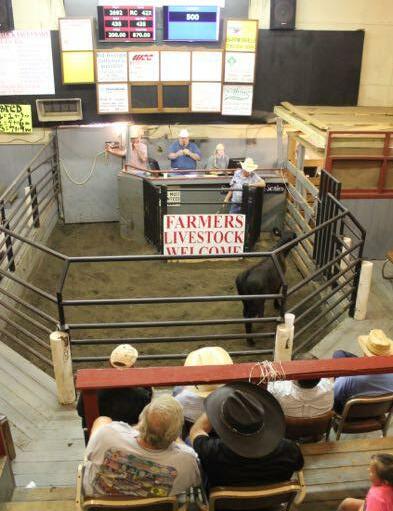
3 minute read
Local Auctions: A Relationship Investment, By LMA
Local Auctions:
A Relationship Investment
Advertisement
By Livestock Marketing Association
Eric Smith, a southeastern producer, encourages other farmers and ranchers to utilize auctions for the highest return on investment.
Located in the southeastern portion of the U.S. is Xtra Ranch. Owned by Eric Smith, the stocker operation prides itself in animal husbandry and producing quality beef to be placed on consumer tables.
Unlike many producers, Smith’s operation wasn’t inherited. His parents had a small cattle farm, but the main source of income for their family came from off-farm jobs.
From a young age, Smith enjoyed many aspects of the livestock and livestock marketing industries; after graduating from college, he knew that his career path would lead him there. After purchasing a few acres and cattle of his own, Smith was in the cattle business.
Over time, Smith’s business shifted from a smaller-size cow/calf operation to a large stocker/ backgrounder business. Believing that he best knew the value of his cattle, Smith took the responsibility of marketing his livestock himself. But with economic market changes and buyer turnover, Smith knew that he needed a livestock auction on his team to compete.
Not only does Smith see buying opportunities at his local auction; he also knows the added benefits of selling his cattle there. He believes that he sells more cattle at auction than he would by selling them direct. Through buyer contacts that his local auction maintains, Smith benefits from the opportunity to sell more cattle through mutual relationships.
Smith, like many other producers, notices the growing trend of utilizing buying stations as a quick and easy outlet to sell livestock with no commission charge. For Xtra Ranch, however, the cost of commission is worth the long-term investment.
“The competitiveness of the market system and business can’t be minimized,” Smith explains. “The excitement, drive and energy and competitiveness among buyers to secure their inventory is unmatched. And you can’t recreate that on a direct sale. Auctions ensure producers get full value for the cattle that day or a premium. More times than not, I recover my commission cost through higher sales.”
While “payday” is an important aspect of running a cattle operation, there are many other factors leading up to that moment. Livestock producers make daily decisions that impact the bottom line of their operation, including selecting appropriate breeding systems, vaccination programs, and feeding rations. Smith believes that producers can secure their return on investment by guaranteeing that their cattle are ready to enter the market.
He stresses the value of this: “If you’ve taken some steps to ensure those animals’ success on your end, all of those things will bring you some premium at market. Everyone would like to have your calves when you have something to offer, and the market operator will be the person to vouch for you.”
Livestock Marketing Association (LMA) President Larry Schnell owns and operates Stockman’s Livestock Exchange in Dickinson, N.D. He also believes that producer success at auction comes from the combination of quality livestock and the long-standing tradition of open competition at livestock auctions.
“Producers should continue to focus on what they do and why they do it,” Schnell says. “Quality is king and can help drive the monetary value of your cattle at auction. We as auction owners help ensure competition and access to marketing opportunities, but it ultimately comes down to what the producer is doing at home.”
Producers are the lifeblood of the cattle industry, and auction owners also serve as an important resource when making on-farm decisions. Smith urges you – whatever the size of your operation – to develop a strong relationship with your local auction.
He concludes with this word of encouragement: “Regardless of the size of your herd, or your experience in the past, there’s always people that are willing to help you from an educational or physical management standpoint. Ask that market operator how you can improve your situation. What I have found in my years of working and selling at auction markets is the heightened sense of competition among auction owners to do the very best for their customers.”











